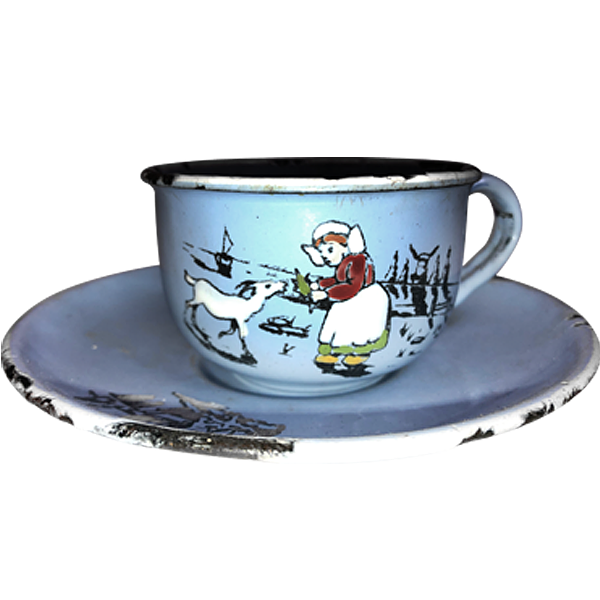
- DE
- EN
- FR


The entire history of the Bing company can be read in this room. By the way, you will find exactly this comprehensively and with many exhibition photos in the magazine "150 Years of Bing" in our museum shop.
The Bing company originally produced household goods before later also producing toys. The household goods were always the larger and more important range. In the café area we have some pieces on display as decoration.
From 1912, Bing switched to war production. Helmets, ammunition boxes and soldiers' tableware were produced. Products were marketed in the catalogue that could be sent to the front as "gifts of love" to soldiers, such as writing sets, tent lanterns or hand warmers.
The toys were also given a military makeover: passenger cars became hospital cars, goods wagons were given military loads and the paint scheme was adapted accordingly.
As early as 1917, Bing had the foresight to resume production of toys and civilian goods. Bing now grew into a corporate group. New companies, acquisitions and the integration of locations and suppliers ensured enormous corporate growth. In 1923, the group, which had become difficult to manage, employed almost 16,000 people. Bing remained on course for success until the Great Depression in 1929.
But this global economic crisis did not stop at Germany. In 1932, Bing wound up its toy production in an orderly insolvency to save the economically more important household goods division. Some Bing companies were still active until 1938, for example the refrigerator manufacturing. Letters from this period were signed with "German greetings".
But this did not save the Jewish company from the National Socialists, and it was not only Bing that was affected: Hermann Tietz's department stores' chain Hertie, which had business connections with Bing, was one of the first large companies to be "Aryanised" in the summer of 1933. This is what the National Socialists called the ousting of Jews from trade, commerce, houses and science. Today this is usually classified as "robbery".
In the case of Hertie, the creditor banks refused to extend loans from the time of the Great Depression. Therefore the board of directors had to resign. From 1938 onwards, Jewish shareholders and part-owners were also forced off the boards of other large companies and credit institutions. In addition, they were often forced to sell their shares for less than their actual value. Nevertheless, you may still be familiar with the Bing carbs today. You can find out what this is all about at station 14.